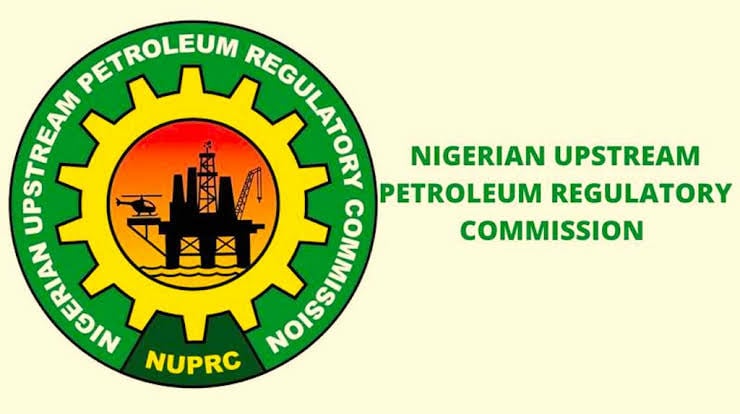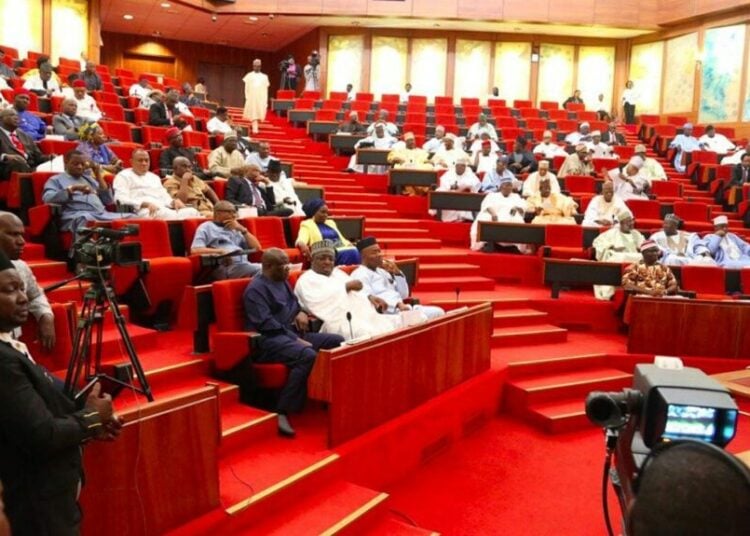
The Dangote Petroleum Refinery has refuted claims by oil marketers that the facility does not have the capacity to meet local fuel demand.
Officials of the refinery told our correspondent that the refinery has enough fuel to satisfy local needs and export to other countries.
Following a statement by the founder of the refinery, Aliko Dangote, that some cabals who are major marketers and traders were fighting against the survival of the $20bn refinery, the Executive Secretary of the Depot and Petroleum Products Marketers Association of Nigeria, Olufemi Adewole, said marketers only want to keep their businesses running by importing fuel.
Adewole dismissed allegations of a ‘cabal’ in the sector but admitted the existence of vested interests among private depot owners, who he said have invested billions of naira over the years to keep fuel flowing to Nigerians.
The DAPPMAN official alleged that the Dangote refinery, despite its massive 650,000-barrel capacity, has not been able to meet even the current reduced local consumption needs. He argued that private depot owners continue to bear the bulk of the fuel distribution burden across the country.
“Quoting the authority’s (NMDPRA) chief executive in his recent presentation at the Villa, he stated that the Dangote refinery is not meeting up to even the reduced local consumption volume. So, for now, the Dangote refinery cannot meet up. It is we, the private depot owners, that have been bridging the gap and meeting the needs of Nigerians,” the DAPPMAN scribe stated.
However, a senior official of the Dangote refinery, who spoke to our correspondent in confidence due to the lack of authorisation to speak on the matter, said the refinery is still exporting fuel outside the country after supplying to the local market.
According to him, the refinery loads out millions of litres every day, wondering how the marketers concluded that the refinery could not meet local demand.
He argued that Nigeria’s local consumption figures have been manipulated over the years to suit various purposes, especially during the fuel subsidy regime, saying the true consumption figure will be revealed for Nigerians to see one day.
“I have seen different reports where the marketers alleged that our refinery could not meet local demands. That is not true.
We produce more than enough fuel for the local market, and we export,” the official said.
Another official of the refinery noted that the decision by President Bola Tinubu to stop the importation of goods that could be produced locally is the only way to grow the economy, warning, however, that importers will strive to frustrate the ‘Nigeria First Policy’.
“The President’s decision to ban imports is the only way we can grow the economy, but importers will do everything to ensure that the policy doesn’t succeed. Why are we importing what we have locally?” the source asked.
The DAPPMAN boss had on Friday accused Dangote of plans to monopolise the downstream sector, especially as the refinery engaged in price cuts. He disclosed that price slashes after cargoes have left the gantry have left many marketers absorbing losses quietly, just to stay afloat.
“We didn’t come out to make noise. But we’ve been bearing the brunt, just to remain sustainable and profitable,” Adewole stated.
Responding, the Dangote source said that some importers do not care about the ordinary man in the country, as they are only interested in profiteering. He said many of them engaged in round-tripping when the Federal Government was still paying subsidies on imported petroleum products.
“These people don’t care for the ordinary man. They are interested in their pockets. Many of them engaged in round-tripping during the fuel subsidy era,” he stated.
The source also queried the current daily fuel consumption figure, saying the real figure must be disclosed.
“Ask them to state how much we consume as a nation. Let them give us the real figure. That’s what they don’t want the masses to know. But the masses will know that one day. Those keeping the secrets know themselves, but nothing lasts forever. We produce every day, and we export steadily. So, what are they talking about?” he queried.
A consultant to the 650,000 barrels per day facility challenged DAPPMAN, the Independent Petroleum Marketers Association of Nigeria, and the Petroleum Products Retail Outlet Owners Association of Nigeria to disclose the quantity of fuel the refinery has in stock before concluding that it does not have enough to meet local demands.
“We need to ask DAPPMAN and the other marketers how they got to know the amount of stock that Dangote has. How did they arrive at the conclusion that the refinery can’t satisfy local needs?” the consultant asked.
The PUNCH recalls that during a tour of the refinery recently, Aliko Dangote said the refinery will soon reach its 650,000 barrels per day full production capacity, adding that Nigeria cannot consume up to 50 per cent of its refined products.
“We can satisfy more than the local needs of Nigeria. We have more than enough. The refinery is producing enough refined products, like gasoline, diesel, and kerosene, to meet 100 per cent of Nigeria’s requirements,” he stated.
Dangote maintained that the local fuel consumption in Nigeria is 40 per cent of the refinery’s total production, stating that the remaining 60 per cent is for export to other countries, especially Africa.
“The maximum local consumption is around 40 per cent, but 60 per cent will be exported. We are making a lot of arrangements with some banks to make sure most of the products are sold within Africa; so that it can be a real African refinery, not done just for us to come and process raw materials and ship the products outside Africa,“ he said.
The Vice President of the Dangote Group, Davakumar Edwin, also reiterated that the refinery can meet all local requirements. Analysing the refinery’s production data during a presentation, he stressed that the facility can produce 104 million litres of different petroleum products per day.
“57 million litres of petrol every day, 20 million litres of jet fuel, 37 million litres of diesel is our daily production. The local consumption is just 46 million litres. The rest, 58 million litres, will be exported on a daily basis,” Edwin explained.
As of February, the refinery supplied 33 million litres of PMS for daily local consumption; diesel is 10 million litres per day, and aviation fuel is 3 million litres, according to Edwin.
February data from the tank farm showed that the refinery has reservoirs to store fuel for days. It has 12 tanks to store up to 600 million litres of petrol, which can serve the country for 18 days. It has 17 tanks for 408 million litres of aviation fuel for 136 days, and 14 tanks to store 340 million litres of diesel for 34 days. Similarly, 20 tanks are in place for 2.4 billion litres of crude oil for 20 days. In all, there are 177 tanks of 4.742 billion litres capacity,” the data showed.
While unveiling the refinery’s first PMS last year, Dangote noted that the facility will show the true daily petrol consumption in Nigeria. The billionaire businessman said, “There is a lot of round-tripping where people now do documentation and the fuel does not come into Nigeria, and this is a fact.
“Right now, as we have this refinery working, it will show the true consumption of Nigeria. We can track every single loaded truck, and we will try as much as possible to track the loaded ships. Trucks, we can tell you where they are, just as now some of the products that we do, we can tell you exactly the consumption pattern.”
Speaking to State House correspondents in Abuja last month, the Chief Executive Officer of the Nigerian Midstream and Downstream Petroleum Regulatory Authority, Farouk Ahmed, disclosed that petrol importation declined from 44.6 million litres per day in August 2024 to 14.7 million litres as of April 13, 2025.
Earlier, the Executive Director, Distribution Systems, Storage and Retailing Infrastructure at the same Nigerian Midstream and Downstream Petroleum, Ogbugo Ukoha, had said that daily petrol consumption has averaged 50 million litres per day and local refineries could not produce 50 per cent of this.
“The daily PMS supply sufficiency was always in excess of 60 million litres, in fact, averaging about 66 million litres a day for PMS. And following Mr President’s withdrawal of subsidy, the announcement on May 29th, 2023, we immediately saw a steep decline in consumption, and between then and as we speak, we’ve continued to do plus or minus 50 million litres.
“Of these 50 million litres, averaging for each day, less than 50 per cent of that is contributed by domestic refineries and so the shortfall, in accordance with the PIA (Petroleum Industry Act), is sourced by way of imports,” the NMDPRA official said.
Our correspondent observed that the figure for daily imported petrol and that of daily consumption provided by the two officials seem to contradict each other.
Ukoha’s revelation indicated that an average of 25 million litres of PMS is being imported daily, if the daily consumption is 50 million litres and more than 50 per cent comes from imports. But the NMDPRA chief executive said importation has dropped to 14.7 million litres.
With the country still struggling to curb fuel smuggling, it may be difficult to get the actual daily petrol consumption figure. Earlier, Aliko Dangote revealed that he was still fighting cabals.
Dangote pointed out that some individuals who “for a very, very long time” have “made a lot of money from” government-subsidised oil imports into Nigeria, were the ones trying to sabotage the 650,000 barrels per day oil refinery situated in Lekki, Lagos.
Dangote was quoted as saying that “those groups have funded resistance to the Bola Tinubu government’s removal of petrol subsidies and are opposed to the refinery operating easily in the country.”
However, Dangote was confident that the battle between him and the groups would be won, priding himself as a long-time fighter.
“We’re fighting, and the fight is not yet finished. But I have been fighting all my life, and I am ready and 100 per cent sure I will win at the end of the day,” he said, disclosing later that the cabals were major marketers and traders.
However, DAPPMAN said there were no cabals, but there were vested interests, stressing that individuals were protecting their investments and trying to prevent a monopoly.
SOURCE : PUNCH






An attention-grabbing discussion is worth comment. I feel that you need to write more on this matter, it may not be a taboo subject but generally persons are not enough to speak on such topics. To the next. Cheers